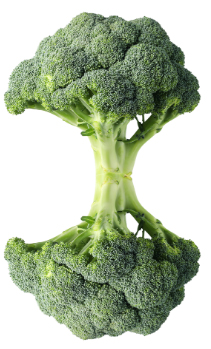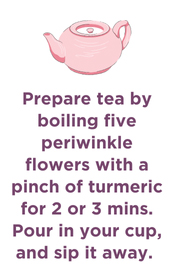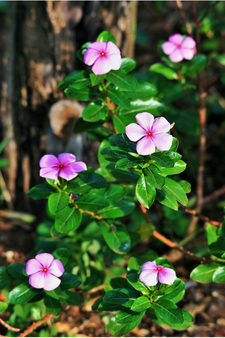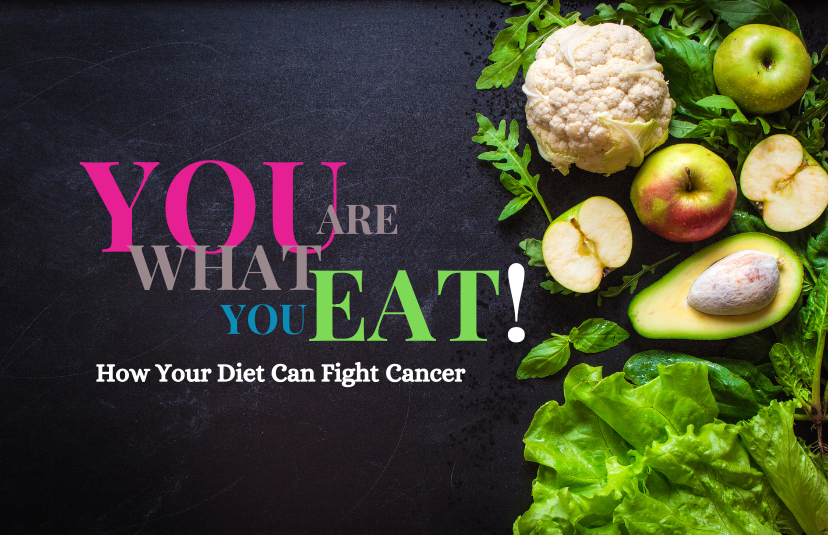How Your Diet Can Fight Cancer
Discover how certain foods can turn your body into an inhospitable fortress against cancer, transforming fear into empowerment. Are you ready to take control?
Imagine a silent, invisible enemy lurking within, just waiting for the perfect opportunity to strike. But what if you held the power to weaken its grip, even banish it altogether, using something as simple as your next meal? As daunting as cancer may seem, the path to prevention might be closer than you think.
Cancer is a word that evokes fear and uncertainty. Yet, when faced with the challenge of cancer prevention, we have more power than we think, and much of it lies on our plates. From decades of scientific and the medical revolution surrounding angiogenesis, we now understand that the foods we eat can either fuel or fight cancer. This isn’t about quick fixes but creating an environment where cancer has no place to thrive.

Angiogenesis and Cancer
Cancer relies on blood vessels to grow. Many adults have tiny, harmless cancers in their bodies, which stay inactive without a blood supply. If angiogenesis (blood vessel formation) is triggered, these cancers become blood suckers by forming their own blood supply. Thus controlling angiogenesis is key to preventing cancer growth.
The Power of Diet
Anti-Angiogenesis Foods:
Many foods have natural angiogenesis inhibitors, meaning that choosing the right foods can help prevent the growth of blood vessels that feed cancer. Research has identified numerous foods and beverages with anti-angiogenic properties. Studies show that con-suming these foods can help inhibit abnormal blood vessel growth. For instance, men who consumed cooked tomatoes regularly were found to have a 50% reduction in the risk of developing prostate cancer. This highlights how diet can play a crucial role in our defense against cancer. Antioxidants, vitamins, minerals, and fiber found in whole foods are our body’s front-line defense against oxidative stress and inflammation—two leading contributors to the development of cancer. The food choices we make can influence our body’s ability to repair DNA, regulate hormones, and combat cell damage.
Top 7 Cancer-Preventing Foods
Consuming nutrient-dense, well-researched foods can greatly reduce cancer risk, but prioritizing local and seasonal foods.

1. Cruciferous Vegetables (Broccoli, Cauliflower)
Cruciferous vegetables, rich in glucosinolates, have been shown to slow cancer cell growth and promote their elimination, effectively reducing the risk of lung, colon, breast, and prostate cancers. Aim to incorporate 3-7 cups of these vegetables into your daily diet.
2. Berries (Blueberries/ Jamins, Strawberries)
Berries are powerful cancer-preventive fruits, rich in antioxidants like vitamin C and ellagic acid, which neutralize cell-damaging free radicals. Studies show that berry extracts can inhibit cancer cell growth, particularly in the esophagus, colon, and mouth.
3. Leafy Greens (Spinach, Parsley, Mint, Kale)
Leafy greens, like those in palak-paneer or saag, are rich in carotenoids, fiber, and folate, aiding in detoxification and reducing the risk of stomach, breast, and skin cancers. Parsley stands out as a five-star food, promoting gut health and supporting various bodily systems.
4. Tomatoes
Tomatoes are rich in lycopene, an antioxidant that may lower the risk of cancers, especially prostate cancer. Cooking tomatoes enhances lycopene availability, making dishes like homemade curry a nutritious, cancer-protective choice. Remember to wash them thoroughly to clean the pesticides.
5. Omega-3
Omega-3 fatty acids, found in flax seeds, chia seeds, and walnuts, have strong anti-inflammatory effects that help prevent cancer. Studies link omega-3 intake to a lower risk of colorectal, prostate, and breast cancers. Rotate different seeds weekly for optimal variety.
 6. Garlic and Onions
6. Garlic and Onions
Everyday kitchen staples like garlic plays a vital role in nutrient absorption and cancer prevention. Garlic’s sulfur compounds boost immune defenses and reduce the risk of stomach, colorectal, and prostate cancers. Use it generously—raw, sautéed, or roasted—to maximize health benefits.
7. Turmeric
The gold of the east that’s commonly found in curries holds an active ingredient called curcumin, known for its powerful anti-inflammatory and antioxidant properties. Curcumin has been shown to inhibit the growth of cancer cells and disrupt their spread. Pair it with black pepper to enhance absorption.
 8. Periwinkle Flower Tea
8. Periwinkle Flower Tea
Vincristine and vinblastine, derived from the periwinkle plant, have been well-established as chemotherapy agents in the fight against cancer for decades. In the 1950s, scientists in Canada found that vinblastine was very effective in treating cancer. It works by stopping cancer cells from dividing and growing, making it useful in treating cancers like bladder, testicular, lung, ovarian, and breast cancer.







